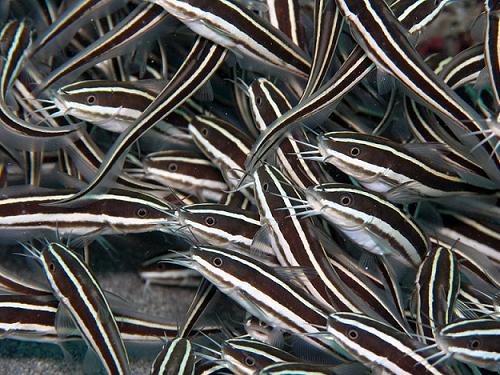Catfish plague Facebook, but sharks kill

commentary The indie flick Catfish tells the tale of a mother who lives an alternate life through fake Facebook relationships. It is delivered as a disturbing mesh of empathy and awkwardness, but to me it is a lesson in privacy.

Catfish(Catfish image by Jens Petersen, CC BY-SA 3.0)
Warning: spoilers.
In the film, the mother seduces men on the social-networking site by masquerading as an attractive young woman, using stolen profile photos.
So ripe are the pickings that she is able to create an entire fictitious network of attractive friends and family connected to her persona.
And while the audience cringes as she is confronted by her swindled suitor, I am thinking of how many ways other people can currently being tricked via Facebook.
Of course, we can't know the precise number of victims for sure, but it's certainly no small figure.
Just this week, the Federal Government has reminded us that fraud costs Australians a whopping $8.5 billion a year, a figure that's increasing thanks to the rise of social networks and more intuitive malware.
For fraudsters, Facebook is a veritable supermarket stocked with most of the 100 points of ID necessary to commit fraud, neatly categorised in user profiles.
So, having seen the power of a false identity, would those watching the film be inclined to lose a little functionality for a lot more security? Would they remove their phone numbers, addresses or even birth dates to reduce the avenues of identity theft?
Judging by the hundred or so mobile numbers and birthday reminders offered up by my Facebook friends' profiles — some I barely know — I'd say probably not.
Couple this with the proliferation of fast internet, fast computing and click-happy fingers, and it isn't a stretch to say that the $8.5 billion figure will only get worse.
The film signed off with an analogy that the mother's deception was like a carnivorous catfish. If placed in a barrel with fish being transported, the catfish will keep the fish lively and on their toes to the end of their journey.
The idea looks at the positive side of being stirred in this manner because it keeps you guessing and reminds you you're alive.
My take, however, is that the fish should learn from the catfish, so that when the shark arrives, they'll be prepared.